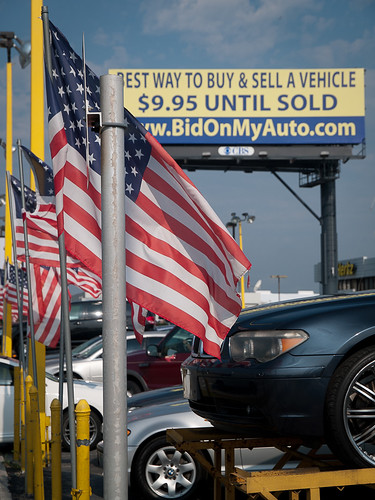Weekend Addictions
If you listen to NPR long enough you'll eventually hear their "Weekend Edition" news show. The title is a poor play on those words, I suppose.
When folks think of addictions they think of drugs and/or alcohol, or some combination of both. Our society has created a major industry around the selling of addictive substances, most notably nicotine delivery systems, otherwise known as cigarettes. We've built a healthy industry around the sale of alcoholic beverages of every type (beer, wine, and other spirits). We tax the devil out of them, and at one point we tried to prohibit the sale of alcohol from 1920 to 1933, with disastrous results.
The nicotine and alcohol industries work very hard to place their products as prominently and as broadly as possible in society. We see sports sponsorships of every stripe, placements in every movie and television show, large ads in every print media, billboards, and ads on the internet. We're constantly reminded that they're out there and that they're fun to use.
There's other addictions in addition to the consumption of mass quantities of addictive organic substances.
There's fossil fuels.
We've been consuming some sort of fossil fuel in ever greater quantities since the start of the Industrial Revolution, starting with coal. Then petroleum was added to the mix around the end of the 19th century, and natural gas came into its own in the 20th. It's petroleum and its refined products, primarily diesel and gasoline, that we've become the most addicted to, and has caused the most damage to our society if you just look around you.
We consume gasoline and diesel primarily with the automobile and trucks. Lots and lots of automobiles. We have an entire subculture devoted to the automobile, from manufacturing to selling to service and beyond. We write songs and stories about the automobile, define our personal selves by the car we drive. We worship the automobile. And in turn, the automobile has transformed us and distorted us and our society.
A key example of this distortion is how we live. Orlando the city is rather small. Orlando's size comes from the huge urban sprawl that surrounds Orlando, and the intricate road system built for cars and trucks that helps tie it all together. We live out in the sprawl and then use our cars to go everywhere else we need to survive, such as buying groceries or seeing a doctor. We drive to go to places of entertainment and worship. We drive constantly.
In part of that Orlando urban sprawl, on a section of roadway known as West Colonial, from the Central Florida Fairgrounds east to John Young Parkway, on both sides of the road, are located car dealerships for Hyundai, Honda, Toyota, Nissan, Subaru, Kia, Ford, GM, and Chrysler/Dodge. They're there to help feed our insatiable car monster.
Scattered in there are some dead dealerships as well, dealerships that've been that way now for several or more years. Like this Suzuki of Orlando that was used to hold a lot of repossessed RVs in January 2009. Then the RVs were all sold off, and the lot went completely empty.
Trailing off of Colonial, down Mercy Drive to Old Winter Garden Road, are the little dealerships that do a bit more than just sell and service cars. Booties, for example, deals in everything from pawning to gold to payday loans. I'm not sure how they wound up with the cars, and I'm not sure I want to know, but it wouldn't surprise me if they were from the pawn side of the business, or as collateral on a loan that didn't get paid off.
And just like on Colonial are the empty little dealerships, like this orange little box with the strip of asphalt and land for holding cars.
The biggest problem with cars and the road system that grew up to service them is our penchant to develop ever more land. Take this field on South Hiawassee across the street from the Metrowest Golf Club. Once upon a time this empty field was covered in woods. Then the woods were bulldozed down to make way for a massive development project. Then the realty bubble burst, leaving a lot of empty scrapped land. Those building you see in the background? The ones in the center are empty.
This sign on Colonial, in front of yet another empty store development, pretty much sums up what we have here in Orlando, and pretty much everywhere else after over a century of unfettered use of petroleum. Just a bunch of sticks 'n' stuff.









Bill, these shots are looking great. Especially like the b&w's and that vacant orange building. Nice stuff!
ReplyDeleteThanks, Hank. I appreciate the compliments.
ReplyDelete